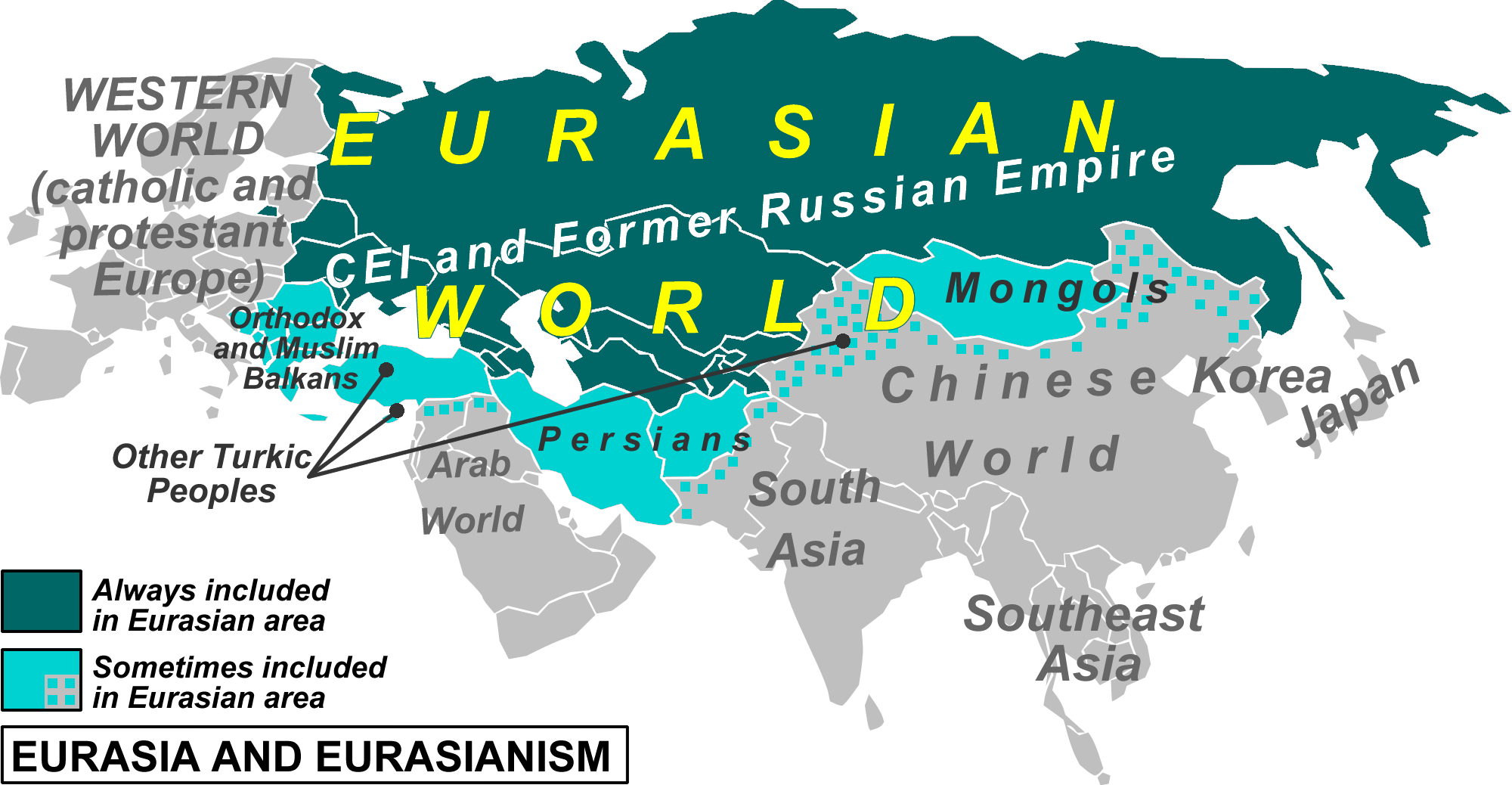Eurasianism is a political and cultural ideology that promotes the idea of Russia as a Eurasian power, bridging Europe and Asia. It emerged in the early 20th century and has experienced periods of resurgence, particularly during times of geopolitical uncertainty.
Core Tenets of Eurasianism
- Eurasian Identity: Eurasianists argue that Russia’s identity is unique, transcending traditional European and Asian divisions.
- Geopolitical Balance: They advocate for a balance between East and West, avoiding excessive alignment with either side.
- Continental Power: Eurasianists emphasize Russia’s role as a continental power, capable of shaping the destiny of both Europe and Asia.
- Cultural Synthesis: They promote a synthesis of Eastern and Western cultures, highlighting the unique cultural heritage of Russia.
- Anti-Western Sentiment: Eurasianists often express skepticism towards Western values and institutions, viewing them as a threat to Russian identity and sovereignty.
Eurasianism in the 20th Century
Eurasianism gained prominence in the early 20th century, particularly among Russian intellectuals and political thinkers. However, it was suppressed during the Soviet era, as the Soviet ideology emphasized internationalism and the unity of the working class.
In the post-Soviet era, Eurasianism experienced a resurgence, particularly among certain political circles. It has been used to justify Russia’s foreign policy, including its interventions in Ukraine and Syria.
Eurasianism in Contemporary Russia
Eurasianism continues to influence Russian political discourse and foreign policy. It provides an ideological framework for Russia’s role in the world, emphasizing its unique position as a bridge between Europe and Asia.
However, Eurasianism is a contested concept, with different interpretations and applications. Some view it as a tool for promoting Russian national interests, while others see it as a dangerous ideology that could lead to isolation and conflict.
The future of Eurasianism in Russia remains uncertain. As the global geopolitical landscape shifts, Russia will need to balance its Eurasian identity with its global aspirations.

Leave a Reply